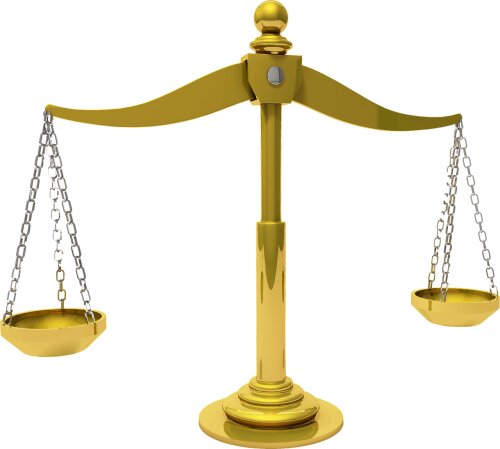Best Collaborative Law Lawyers in Mthatha
Share your needs with us, get contacted by law firms.
Free. Takes 2 min.
Free Guide to Hiring a Family Lawyer
List of the best lawyers in Mthatha, South Africa
About Collaborative Law in Mthatha, South Africa
Collaborative Law is an alternative dispute resolution process that helps parties resolve conflicts amicably without going to court. It emphasizes cooperation and constructive negotiations facilitated by trained professionals. In Mthatha, South Africa, Collaborative Law is gaining recognition as a viable method for resolving disputes, primarily in family law matters such as divorce, child custody, and division of assets. This approach is characterized by transparency and a commitment from both parties to find mutually beneficial solutions.
Why You May Need a Lawyer
There are several scenarios in which you might require the assistance of a lawyer experienced in Collaborative Law:
- Divorce Proceedings: When a marriage ends, and both parties aim to separate amicably while ensuring fairness, Collaborative Law can provide a framework for negotiation without court intervention.
- Child Custody and Support: Parents can work together with facilitators to establish a parenting plan that puts the best interests of the child first.
- Family Business Disputes: When disputes arise within a family-owned business, Collaborative Law offers a platform for disputes to be resolved effectively and constructively.
- Blended Family Challenges: With the blending of families, there might be complex dynamics that can benefit from professional facilitation.
Local Laws Overview
In Mthatha, as in the rest of South Africa, Collaborative Law isn't governed by specific legislative frameworks but operates within the general legal system, adhering to the principles of bona fide negotiation. Parties in Mthatha are encouraged to commit to confidentiality and engage collaboratively to reach settlement agreements within existing family law legislation. This area often intersects with the broader South African legal mandates and the Constitution, which upholds the protection of rights for families and children.
Frequently Asked Questions
What is Collaborative Law?
Collaborative Law is a legal approach where parties and their attorneys commit to resolving disputes without court intervention, focusing on negotiations and transparency.
How is Collaborative Law different from mediation?
While both aim for amicable settlements, Collaborative Law involves legal representation throughout the process, whereas mediation typically involves a neutral third-party facilitator.
Is Collaborative Law legally binding in Mthatha?
While the process itself is not legally binding, agreements reached through Collaborative Law can be formalized into binding legal contracts.
What types of conflicts are suited for Collaborative Law?
Collaborative Law is most effective in family-related issues such as divorce, child custody, and division of marital assets.
How long does a Collaborative Law process typically take?
The timeline varies depending on the complexity of the issues, but it generally takes less time than traditional court proceedings.
Can Collaborative Law work if one party is uncooperative?
Collaboration requires genuine willingness to cooperate. If one party refuses to engage constructively, the process may not be effective.
Are there prerequisites before entering a Collaborative Law process?
Both parties must voluntarily agree to participate and sign a participation agreement that outlines their commitment to the collaborative process.
What costs are involved in Collaborative Law?
Costs can vary, but typically, parties share the costs of experts and facilitators, and each pays for their legal representation.
Can I switch to litigation if Collaborative Law fails?
Yes, but typically the collaborative lawyers involved must withdraw, and the parties will have to hire new legal representation for court proceedings.
How can I find a Collaborative Law lawyer in Mthatha?
You can begin by contacting local law societies, seeking recommendations, or researching law firms specializing in family law disputes.
Additional Resources
For additional help and information, consider reaching out to the following organizations:
- Law Society of South Africa: Provides a database of registered lawyers.
- Family Law Association of South Africa: Offers resources related to family law and Collaborative Law.
- Legal Aid South Africa: Offers legal assistance to those who qualify based on financial need.
- Local Law Libraries: Can provide access to legal texts and resources for further study.
Next Steps
If you are considering pursuing a Collaborative Law approach in Mthatha, start by consulting with a qualified lawyer who specializes in this area. Discuss your situation in detail, and ensure you understand your rights and options. It's important to select a professional who aligns with your commitment to a collaborative resolution. Schedule initial consultations with different lawyers to find the right fit before proceeding. Once you choose your representation, you can collaboratively outline your goals and prepare for your sessions.
Lawzana helps you find the best lawyers and law firms in Mthatha through a curated and pre-screened list of qualified legal professionals. Our platform offers rankings and detailed profiles of attorneys and law firms, allowing you to compare based on practice areas, including Collaborative Law, experience, and client feedback.
Each profile includes a description of the firm's areas of practice, client reviews, team members and partners, year of establishment, spoken languages, office locations, contact information, social media presence, and any published articles or resources. Most firms on our platform speak English and are experienced in both local and international legal matters.
Get a quote from top-rated law firms in Mthatha, South Africa — quickly, securely, and without unnecessary hassle.
Disclaimer:
The information provided on this page is for general informational purposes only and does not constitute legal advice. While we strive to ensure the accuracy and relevance of the content, legal information may change over time, and interpretations of the law can vary. You should always consult with a qualified legal professional for advice specific to your situation.
We disclaim all liability for actions taken or not taken based on the content of this page. If you believe any information is incorrect or outdated, please contact us, and we will review and update it where appropriate.









